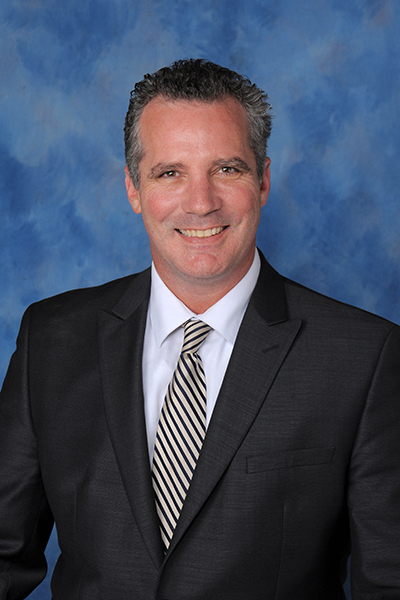Martin Hadida had a job he was happy with when he was contacted six years ago by Memorial Healthcare System (MHS) in Hollywood, Florida, with an offer he couldn’t refuse. The position of director and enterprise data architect involved leading four different teams: database, business intelligence (BI), interfaces, and software development.
In that arrangement, he saw tremendous possibilities to create exponential returns that would benefit both the organization and patients.
“Traditionally, what I find is that these teams do not usually report to the same leader,” Hadida explains. “The database team may work closely with the BI team, but they’re usually separate from software development and interfaces.

“I think it’s that combination of having them all report under me—all of these teams meeting together on a regular basis, all of the managers for these teams and I strategically thinking ahead about how we can help each other out—those are the unique opportunities that I saw that led me to Memorial, and I feel like we’ve been accomplishing that,” he adds.
Hadida was born in Argentina. When he was three, his family moved to Venezuela and then made their home in Miami Beach when he was eight. He headed west to California to attend college, first at the University of California, Santa Cruz, for his undergraduate degree and then to the University of California, San Diego for his master’s.
“I would say that my career kind of started there, in San Diego,” Hadida reflects. “One of the things I learned in the interim between my bachelor’s degree and my master’s degree is that employers were looking for job experience. So, I decided that I would pursue a master’s degree and also look for some part-time work so that I could have some job experience.”
He found that experience at the San Diego Supercomputer Center.
“I did some really exciting work,” he recalls. “I learned how to be innovative at the Supercomputer Center. I learned that you can really accomplish anything by working together.”
Hadida spent thirteen years in California, but Miami Beach was his true home. So, he moved back and got a job at the University of Miami’s Health System (UM), where he worked on a key project: the implementation of the Epic system.
“That was one of the most exciting projects I had been a part of,” he says. “There was a lot of great energy—it was a really big project with a lot of people, and a lot of teams were involved. At the time, I was transitioning from being more of a software developer to being the manager of the interface team. That was a critical transition for me in my professional career.
“I was very much hands-on,” he adds. “I liked doing the work. I wasn’t necessarily thinking about going down the management track, but my boss at the time, who I respected a lot, mentioned this possibility, the opportunity to be the manager for that team.”
His next stop was at Jackson Health System, where he lent his expertise managing the interface team.
“I brought with me a lot of my best practices, a lot of the experience I developed during those last three years at UM,” he notes. “I feel like I turned that team around from one of those low-performing teams to one of the higher-performing teams in that department. I’m very proud of that.”
“A lot of people are working from home these days, so we’re repurposing our physical space, whether it’s a patient room or a doctor’s office that were mocking up with new technologies and devices.”
As much as Hadida enjoyed that work, he saw his position at Memorial as an opportunity to innovate. One key project he’s led involved the interface team and implementing a new module for the Cloverleaf interface engine, one that allows for storage of real-time messages in the Microsoft SQL server database.
“This is something that wasn’t possible before with Cloverleaf here at Memorial,” Hadida says. “When I read that this [module] is something that was available, I immediately saw some opportunities for my business intelligence team and my software development team. We pitched the idea, we got the support that we needed, and we introduced this feature. It’s called the message archive, or the message warehouse. And once we had these messages stored in the SQL service database, all of a sudden my BI team and software development team were able to easily make use of it.”
Another project the business admission team is working on is a readmissions alert.
“We’re able to detect when a patient has just entered our emergency department and if they’ve been here during the last thirty or sixty days,” Hadida says. “So, we can send an alert right away to let people know, ‘Hey, there’s a potential readmission here,’ and we can get involved and interact and intervene, and maybe learn some lessons about why they came back and what we could have done better during the previous admission, which also affects how we treat that patient now that they’re back.”
Since joining Memorial Healthcare System, Hadida has not been afraid to take on some tough tasks, including leading a strategy for data structure and centralization.
“That admittedly has been a challenge for us in our organization,” he notes. “We’ve become very decentralized when it comes to data, and this is something that I see often our industry. In the information age, everybody needs access to data; everybody has a lot of reports and analytics that they need to do.”
For example, Memorial Healthcare System has three business intelligence teams—one in IT, one on the business side, and a population health BI team. Hadida explains that the three directors have been working closely to centralize data and standards, with the goal of everyone reporting out of the same place and working with the same numbers.
Recently, MHS made a strategic decision to leverage the Epic Caboodle Data Warehouse as its single enterprise data warehouse (EDW). For Hadida’s BI team, this meant migrating away from its homegrown EDW and onto Caboodle. They started this migration by focusing on Epic data sources first. All three BI teams are now heading in this direction, and Hadida notes that these efforts have been going well thus far.
In looking to the future, Hadida is excited about Memorial Healthcare’s plans to create an innovation center, which reminds of him of a time much earlier in his career at the San Diego Supercomputer Center.
“I feel the same creative juices flowing with our innovation center,” he says. “We really want to be thinking ahead. We want to be experimenting with very new technologies and bringing some modern-day solutions to our healthcare systems.
“We’re developing this innovation center in our office base because of the new normal now,” he continues. “A lot of people are working from home these days, so we’re repurposing our physical space, whether it’s a patient room or a doctor’s office, that we’re mocking up with new technologies and devices. I’m very excited about that and I feel my teams are going to be a big part of that.”
Applied Reliability Lab (ARL) is a data analytics firm supporting organizations’ transformation into a data-driven culture. This transformation takes more than technology—transformation requires changing mindsets, attitudes, and habits-embedding data into the fabric of the organization. People want to use data and encourage others to do the same. We support this effort with custom training and consulting.


